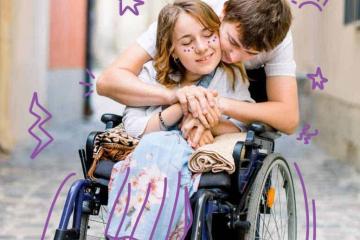Caregiver Knowledge and Preferences for Gross Motor Function Information in Cerebral Palsy
This article focuses on understanding the knowledge and preferences that caregivers of children with cerebral palsy (CP) have regarding information about their child's gross motor function. CP is a condition that affects an individual's ability to move and maintain balance and is often caused by a non-progressive (doesn't get worse over time) disorder of the developing brain. CP is often diagnosed early in childhood.
The researchers conducted a study involving caregivers of children with CP to explore their understanding of their child's gross motor function and preferences for receiving information related to their child's gross motor function. Gross motor function refers to the ability to control large muscles and perform activities like sitting, walking, running, and jumping.
The study found that caregivers generally had a good understanding of gross motor function in CP, but there were some gaps in their knowledge. Specifically, they struggled to understand how knowledge about their child's gross motor function can impact planning for the child's everyday activities and quality of life in the future.
In terms of information preferences, caregivers expressed a desire for more personalized and practical information related to their child's specific motor abilities and limitations. They emphasized the importance of receiving information in a clear and understandable manner.
Based on these findings, the researchers recommend that healthcare professionals and providers of care for children with CP focus on addressing knowledge gaps and providing tailored information that is relevant to each individual child. They also emphasize the importance of using clear and easily understandable language when communicating with caregivers.
Understanding caregiver knowledge and preferences regarding gross motor function in CP can help healthcare professionals and researchers develop effective strategies for educating and supporting caregivers, ultimately improving the care and well-being of children with CP.
“Results may inform the development of caregiver decision aides and clinician training to improve communication about difficult prognostic information across multiple episodes of care.”





